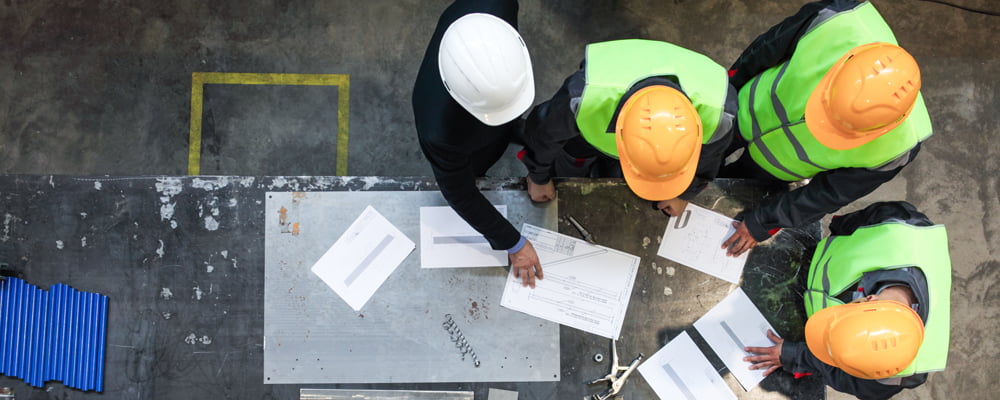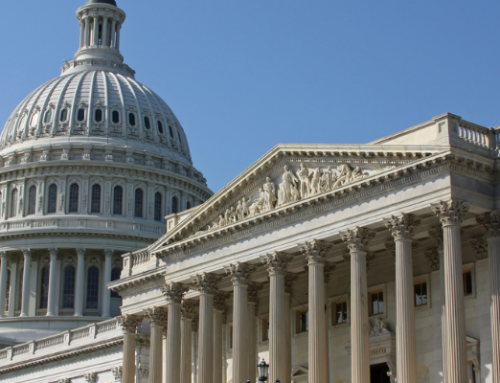Few contractors give much thought to state sales tax when they’re installing property improvements for a customer. And, to a point, that’s correct; the jobsite is not the time or place to consider the effects of sales tax. Understanding tax exposure for the materials they order and install should happen much earlier in the process. Real estate and construction contractors may not be used to the intricacies of state sales and use taxes, but they will need to develop at least a basic understanding of their liability to avoid unexpected costs. States’ rights to collect sales tax from out-of-state vendors combined with budgetary pressures mean that states are paying more attention to tax they are owed.
Construction contractors’ state sales tax exposure must be addressed in the bidding stage. Failure to do so may mean the difference between lost profit on a job or a lost bid for overstated costs when sales tax is not correctly considered.
Virginia, Maryland, and the District of Columbia have similar rules regarding the treatment of state sales tax for contractors, so this guidance can be applied generally to areas where most PBMares clients operate. However, each state sets its own rules, so it is important to know before you bid!
Fundamentals of State Sales Tax Treatment for Construction Contractors
The first step in addressing sales tax issues is to establish the company’s primary role. Is it truly a contractor making improvements to real property, or does the company also sell materials, too? If the company is a contractor, it is the end-user and taxes are paid when materials are purchased. Contractors should not charge sales tax to the customer. If the company sells the materials, it is a retailer, and retailers charge sales tax to the customer.
The second step in understanding sales tax compliance is to know which states are involved and whether state lines are being crossed when it comes to ordering or installing materials. For example, if materials are ordered from South Carolina and shipped to New Jersey, then tax is paid in New Jersey since that is the ultimate destination and place of use. In another example, if a contractor orders a granite countertop from South Carolina and has the granite slab shipped to Virginia, where the slab is cut to specifications and then shipped to New Jersey, then both Virginia and New Jersey would be owed state sales tax.
In that case, New Jersey’s tax due is the difference between what was already charged in Virginia and what would be charged in New Jersey, assuming the state has a higher tax rate. Notice how tax liability is treated across state lines in this example; it’s not double taxation, but rather a reciprocal agreement regarding sales tax. This is why paying attention to where materials are ordered from, where they’re fabricated, where they are stored, and the final destination of the finished goods is so important.
Special Considerations for State Sales Tax
In addition to understanding the company’s primary role and whether materials are crossing state lines, there are a few other situations that contractors need to be aware of. One is that some states don’t have sales tax at all, or if they do certain transactions are taxed differently. Two common excise taxes that contractors are likely to run into including a privilege tax and gross receipts tax.
A privilege tax is often confused with sales tax, but it’s not; it is essentially a fee levied in exchange for a privilege or license granted to the taxpayer; for example, vehicle registration taxes, or more commonly, a tax on a transaction for the privilege of doing business in that state.
A gross receipts tax is levied on a company’s total sales. Seven states, including nearby Tennessee and Ohio, currently impose statewide gross receipts taxes and several other states allow local municipalities to impose their own gross receipts tax. Virginia is one of these states, so it pays to know exactly where business is being done, whether across state lines or within certain local jurisdictions. These taxes apply regardless of the type of revenue.
Additionally, contractors for data centers in Virginia should be aware of a special exemption certificate. The state issues data centers these certificates, which are then provided to the contractor so that materials purchased for the job are exempt from Virginia sales tax. This does not apply to Maryland.
State Sales Tax Exemptions and Special Circumstances
There are a few scenarios where state sales tax would not apply, and others where the tax treatment is less clear-cut.
When contractors perform work for exempt entities such as non-profits, they may not necessarily be exempt from state sales tax when purchasing materials for the job. There is no flow-through exemption in Virginia, although Maryland permits some flow-through exemptions for certain state contracts. The District of Columbia fully permits flow-through exemptions without the need for a separate contract through D.C. Mun. Reg. Title 9, Sec. 438.8.
Contractors purchasing materials for direct use by a manufacturer in the manufacturing process, such as a generator, boiler, or turbine, may purchase those qualified items exempt from sales tax. The exemption applies only if these machines are installed turnkey. The catwalk around a generator or boiler, as an example, would be subject to sales tax.
In the event of routine maintenance or repairs on real property, such as HVAC, contractors would omit sales tax from customer invoices but pay for it themselves, except if the repairs are to tangible personal property, in which case materials are taxed to the customer. Generally, bundled services are taxed in their entirety, but labor – which is separately stated – is not subject to sales tax.
Fixed assets, in very specific situations, could be another potential sales tax exemption, but it is rare. When a contractor sells equipment used in production, it is considered part of their trade and is therefore subject to sales tax. There is no exception for limited annual transactions, such as with garage sales, where two garage sales per year would not be enough to be considered a reseller.
2017 Virginia Tax Ruling Affecting Sales Tax Treatment of Retailers and Contractors
On July 1, 2017, Virginia repealed a portion of the Retail Sales and Use Tax that affected some construction and real estate contractors. Specifically, contractors that sell and install fences, Venetian blinds, window shades, awnings, storm windows and doors, floor coverings, cabinets, countertops, kitchen equipment, window air conditioning units, or other comparable items were affected by the law change. Prior to 2017, these contractors would charge customers tax on materials purchased at the time of installation. Thus, they would not pay sales tax when they bought the materials. The new law states that contractors must pay sales tax when they buy materials, and the tax is not charged to the customer.
There are two exemptions where contractors are not required to pay sales tax when they buy materials and can instead collect sales tax from the customer. The exemptions are:
- If they know that listed materials will be sold without installation, they can present a resale exemption certificate to their vendor.
- If they buy materials with the exemption certificate and later install them to real property. In this case the contractor would pay use tax once the materials used in installation.
Tips to Manage State Sales Tax
- Keep an inventory account
- Ensure staff have appropriate training in sales tax matters
Conduct a sales tax review every couple of years. Construction contractors can better manage the effects of state sales tax exposure by keeping an inventory account. This gives an accounting of items drawn out of inventory for contracts. For example, if a contractor located in the District of Columbia draws down inventory from his company in Virginia to use for a project in Maryland, then Virginia sales tax is due. Alternatively, materials could have been ordered and shipped to Maryland; in which case, Maryland sales tax would be due. The inventory account lets the contractor easily and quickly see where materials are ordered from and where they’re going, so it becomes easier to remit accurate tax.
Contractors will often have a good handle on sales tax matters until a key employee leaves. The new person may not have the same background or experience. It is important for management to ensure that employees have an appropriate understanding of sales tax matters and arrange for periodic training to update skills. Enabling access to tax advisors or technical resources will also facilitate compliance.
Contractors should conduct a sales tax review every couple of years to ensure their transactions are still within compliance. Tax overpayments do happen, but seldom to contractors; more often, a state audit reveals that a contractor wasn’t paying enough in taxes and will be responsible for all taxes due, plus sometimes fees and penalties for failure to pay. Especially now, states are going to be looking at all avenues to collect on the tax they are entitled to. It’s important to be proactive and be aware of full tax exposure in all jurisdictions. Despite these rules applying to Virginia, Maryland, and the District of Columbia generally, contractors should still seek guidance from their tax advisor.






